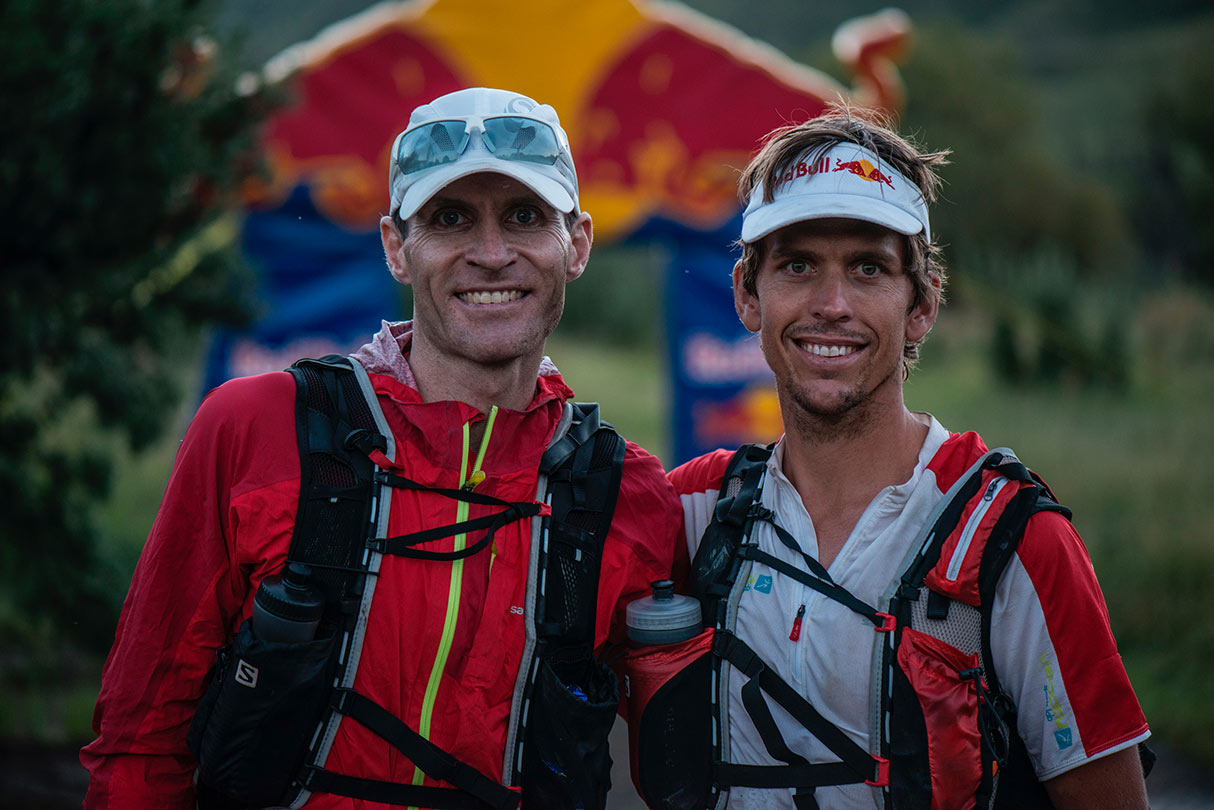Advertisement
In the early hours of the morning of Friday 17 April, Ryan Sandes ran into the front door of his home in Noordhoek, Cape Town, for the 1,463rd time, to complete a 100-mile (160km) run in 26 hours and 27 minutes.

Maybe Ryan’s toughest 100-miler yet
The Red Bull ultra trail runner, with Ryno Griesel, holds the joint fastest known time (FKT) for the Drakensberg Grand Traverse, has crossed the Great Himalaya Trail on foot, and has won major trail races on every continent (including the prestigious Western States and Leadville 100), but the personal challenge he dubbed the #HomeRun is one of his most arduous achievements.
‘It was a lot tougher than I expected,’ a visibly exhausted Sandes commented in a smartphone video clip filmed by his wife, Vanessa, after he completed the run at 03:42. Sandes started his run at 01:15 on Thursday 16 April and stopped only to refuel at his dining room table and change into a fresh running kit until he completed the entire 100 miles.
‘Now I can chill for a week or so, and I don’t have to do any of the kind of half-hearted five-kay garden runs or anything like that,’ he said jokingly. Like many other professional athletes – and a host of recreational joggers and social sportspeople – the Capetonian has had to radically rethink his racing and training schedule for the rest of the year.
Advertisement
It’s all about pushing limits
Sandes lives in a residential estate with a lot of open land, so he can fit in a decent run around the perimeter, or through the fynbos, but he did this as a special challenge. He knew it would be hard. Referring to something the legendary trail runner Scott Jurek (who won the Western States 100-Mile Endurance Run a record seven straight times, among countless other accolades) said a few years back, Sandes says: ‘He spoke about how the ultimate challenge was running around a track for 24 hours because of the boredom – the mental fatigue.’

The loop on which Sandes completed the route was just over 100 metres long and included some stairs, which means that over the 100 miles he climbed over 4,500 metres, which is the equivalent of half the height of Everest, or almost height of Mont Blanc.
‘There was no space to open up on the lap, or get into any kind of rhythm, so it was nothing like a 100-mile trail race,’ Sandes said. ‘I knew it was going to be really slow and tough on the body.’
Standard tactics
Sandes tackled the challenge as he does all of his other races and FKT projects – by breaking it down into smaller goals. ‘I pushed into that first night stretch, and then the day stretch, and then again into the night, ultimately breaking it down into four separate marathons – or just about.’

Even breaking it down into the ‘easily accomplished’ four marathons back to back, Sandes probably could not have managed on his own. He had his wife Vanessa and son Max as seconds the whole way. Vanessa made sure that the ‘aid station’ setup on the dining room table was always well stocked with Red Bulls, soft flasks filled with a water, electrolyte and carbohydrate mix, sports bars and various other snacks. ‘It was nice to have so much choice,’ Sandes added, commenting that he was tempted to stop and sit down for breaks but he knew that might set him back so he would pick up the soft flasks and run the laps with them in his hand.
At least, when he was finished, he didn’t have far to go for a hot shower and a nice comfy bed.



